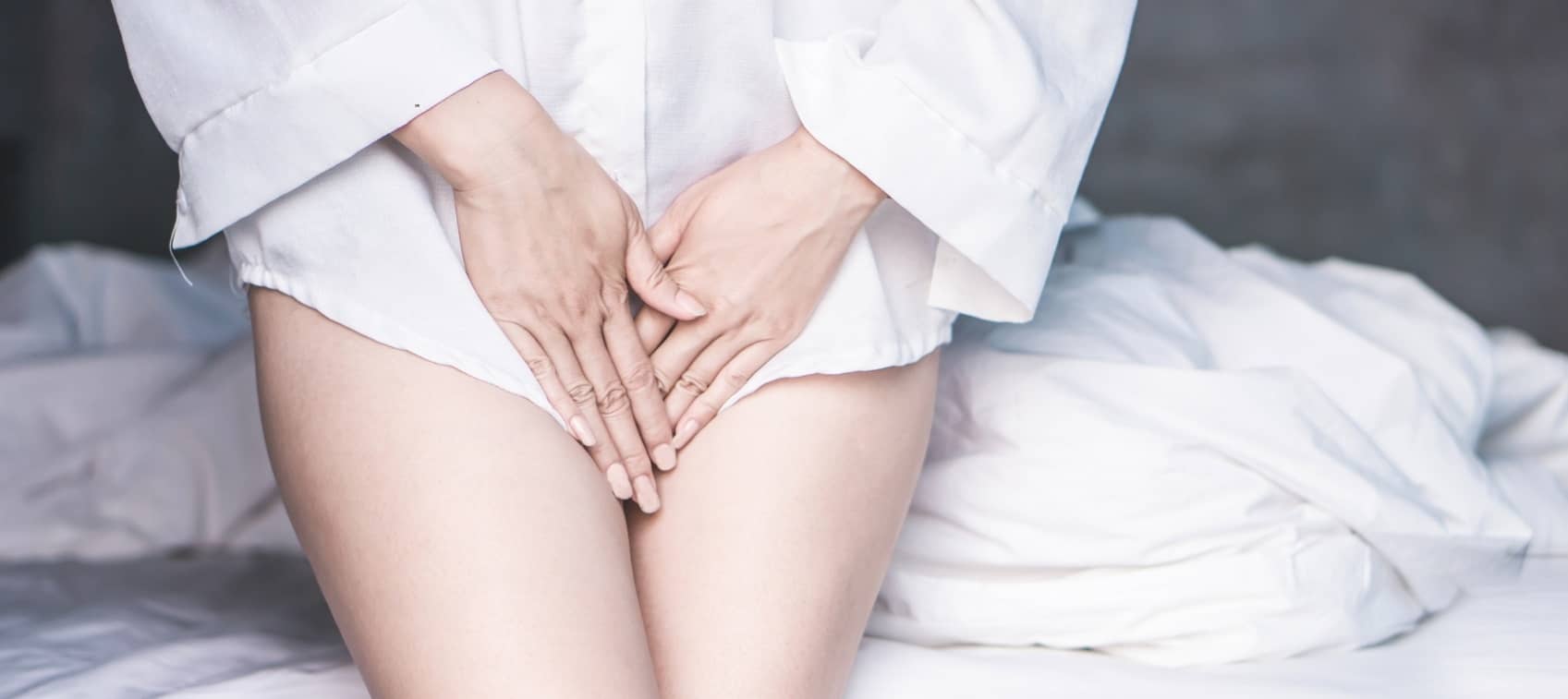
Similar to the good and bad yeast and bacteria that make up our gut microbiome, the vaginal microbiome, as well as the urinary microbiome—collectively known as the urogenital microbiome—are also made up of a mixture of bacteria. And researchers are really just beginning to understand the impact it has on women’s health.
What Happens When Your Vaginal Microbiome Is Out of Balance
One thing we do know is that infections like bacterial vaginosis, a bacterial overgrowth in the vagina, can happen when the delicate environment of the vaginal microbiome is out of balance. You may experience symptoms such as itching, discomfort, and a fishy odor. It’s usually easily treated with antibiotics. But many people don’t experience symptoms at all, making it hard to detect.
Urinary tract infections (UTIs) are a common type of bacterial infections that can also be caused by the out-of-balance vaginal microbiome. Millions of women are diagnosed with UTIs every year—and approximately 10% of postmenopausal women will report they’ve had a UTI within the past year.
The main culprit behind recurring UTIs in postmenopausal women is physical changes, including thinning of the vaginal tissue, pelvic organ prolapse, incontinence, and trouble completely emptying your bladder. Lower levels of estrogen after menopause are also a contributing factor.
What You Can Do to Keep the Vaginal Microbiome Healthy
Luckily, there are simple, natural solutions to help you maintain the health of your vaginal microbiome.
1. Minimize sugar, processed foods, and refined carbohydrates! Not only do these foods have low nutritional value, but they also feed the yeast and bad bacteria in your vaginal microbiome, making you more vulnerable to infection.
2. Stay hydrated! Drinking lots of water helps to moisten your tissues and flush out harmful microbes that can ascend from your perineal area. Research shows drinking an extra 6 cups of water daily can help reduce recurrent UTIs. So, drink up!
3. Don’t hold your urine. And always urinate before and after sex. This helps flush out unwanted bacteria.
4. Avoid vaginal douches. And be cautious of bubble bath, bath oils, vaginal creams, lotions, deodorant sprays, or harsh soaps as they can alter the vaginal flora, which may ultimately result in a UTI.
If you want to support your vaginal tissue health with a personal lubricant or vaginal moisturizer, make sure that it has a pH similar to your natural vagina secretions. I also recommend you choose one that is water-based and paraben-free.
5. Probiotics and cranberry to the rescue. Not only do probiotics support the microbiome of your gut, they can also positively impact your vaginal microbiome. Lactobacillus acidophilus, Lactobacillus rhamnosus, and Lactobacillus reuteri are shown to help maintain vaginal balance by sticking to vaginal surfaces, making it more challenging for harmful bacteria to grow. I recommend taking a probiotic daily. For more localized support, many of my patients have benefited from vaginal probiotic suppositories.
Cranberry proanthocyanidins found in capsules or liquid extracts can also help inhibit bacteria from attaching to your urinary tract wall, which can help reduce infection. If you have reoccurring UTIs, I recommend taking 500 mg of a cranberry concentrate once or twice a day.
6. Don’t self-diagnose. It’s important to have your symptoms evaluated by a practitioner to ensure that you have the correct diagnosis and treatment. Please don’t grin and bear the discomfort alone. Find a practitioner to be your health ally to guide you through this process.
REFERENCES:
- https://www.scientificamerican.com/article/decoding-the-vaginal-microbiome/
- https://rightasrain.uwmedicine.org/well/health/vaginal-microbiome
- https://www.clinicaladvisor.com/home/features/managing-acute-utis-in-postmenopausal-women/
- https://www.health.harvard.edu/blog/not-again-when-utis-wont-quit-at-midlife-201509258353
- https://www.verywellhealth.com/menopause-vaginal-urinary-tract-changes-3520881


